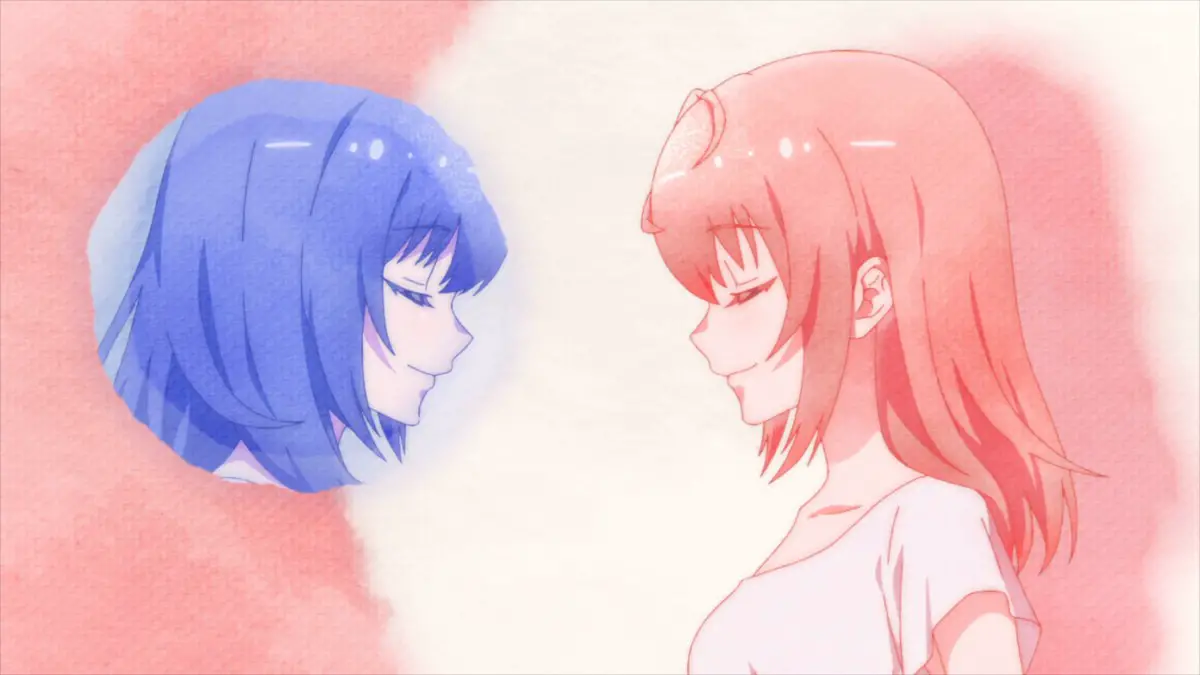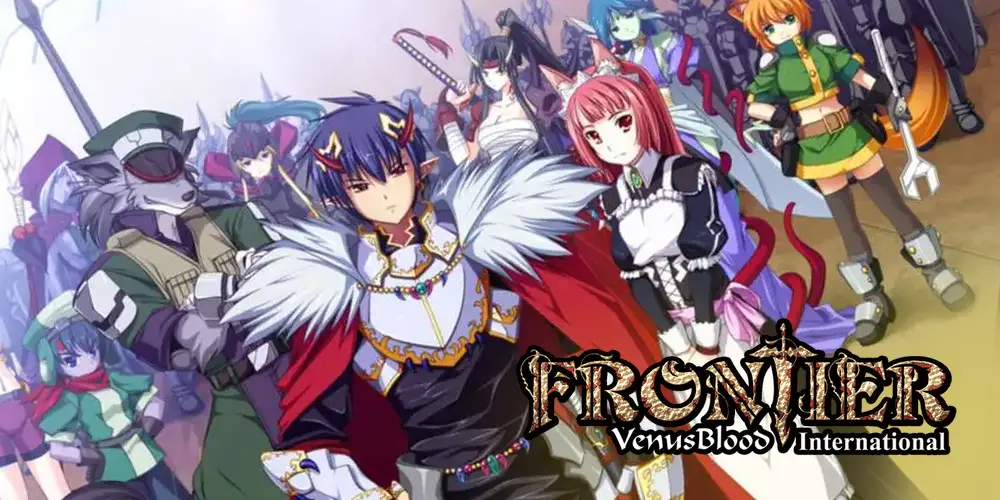In a world very much like our own, theater actors have developed special abilities, known as Senses, that enhance their skills and entrance audiences around the globe. For one, it might be unparalleled concentration; for another, it is a mesmerizing singing voice that makes every role her own; for yet another, it is the needle-sharp insight needed to get the best out of a troupe, and so deliver the ultimate ensemble performance. In this world, teenager Kokona Otori’s Sense is unique. You see, it isn’t really an ability at all—it’s a person. Her Sense is the perfect friend.
As followers of Jesus, we too have a Sense like Kokona’s—and his name is Holy Spirit. So let’s take a deep dive into the three-episode mid-season arc of Stella of the Theater: World Dai Star, and see how it can help us to better recognize our own supernatural, perfect friend and the relationship he invites us into.
World Dai Star offers up a low-key revolutionary twist on two of the pillars of anime: special abilities and the power of friendship. Many series revolve around these twin features and the lessons they elicit, as characters learn to carry power well and walk together in community. But this series weaves these two staple ingredients together into a single strand, in the form of Shizuka.
For the first four episodes, it is unclear who exactly Shizuka is, though two things are certain: she is Kokona’s best friend and no one else can see her. Kokona herself doesn’t even know exactly what she is; Shizuka is simply Shizuka, her acting coach, biggest fan, and closest confidante, all rolled into one. But one day, at a crucial moment, she becomes visible to others and the manager of the troupe recognizes that Shizuka is actually Kokona’s Sense—something she did not believe she had. What a paradigm shift!
But Kokona’s Sense is not like other Senses, which are essentially super-skills that must be mastered and controlled by their wielders (insert requisite training montage and/or tragic plot device to quicken said mastery). Instead, Kokona’s “ability” has agency—she has personhood and a personality too. Kokona’s Sense is not an “it”, but rather a “she”. This distinction has massive implications, both for Kokona and for us as Christians.

I have to admit something: I spent my early Christian life thinking of the Holy Spirit as an “it”. I viewed him as a kind of godly force, equal to God the Father and Jesus the Son of course, but different—disembodied and depersonalized, a sort of active extension of God’s will that “got things done,” but which remained rather ambiguous. I thought of the Holy Spirit as a power that needed activating, be it through right behavior, earnest prayer, or simply at the behest of the mysterious and unfathomable will of God. And truth be told, I didn’t give much thought to him beyond tacking his name on the end of prayers. My Trinity was more like Father, Son, and Holy Bible than Holy Spirit.
But the Holy Spirit is not an “it”. Like Shizuka, he’s a person, which means that he has a personality, and one that we can get to know. And what’s cool is that Shizuka actually embodies a number of key traits of the Holy Spirit!
First off, she is Kokona’s teacher, drawing on the riches of her skills, knowledge, and wisdom to offer the young actress counsel. Shizuka is far more talented than Kokona, yet she doesn’t use this to browbeat the girl or lord it over her, but to help her grow in her performance, equipping Kokona to achieve beyond her expectations, especially in stressful situations. It’s the same with the Holy Spirit, whom Jesus described as our teacher. He searches the very heart and mind of God to share his riches with us. It was not without reason that Jesus told his disciples to rely on the Holy Spirit when they faced trials—including literal court proceedings where every word and gesture matters, just as on the stage.


Shizuka is also Kokona’s constant champion, both encouraging and defending her, as the situation demands. When Kokona is second-guessing her pursuit of acting before her big audition, it is Shizuka who fills her afresh with confidence and vision. When the rude behavior of others and her insecurities about her (perceived) lack of a Sense bring Kokona down, it is Shizuka who reminds her of how far she’s come and how close she is, with a little courage, to reaching that next step. These are the actions of a paraclete, from the Greek word parakletos—a term frequently used in scripture to refer to the Holy Spirit and which means comforter, counselor, and advocate. Often, this comfort, counsel, advice, and defense comes to life through the invitation to dream, to aspire beyond what seems reasonable. And indeed, Shizuka dreams a much bigger dream for Kokona than the girl does for herself: Shizuka enjoins her to set her sights not just on membership in a troupe or becoming a Dai Star, but on becoming a World Dai Star, and within seven years, no less! Just so does the Holy Spirit delight in inspiring us to expand not just our expectations, but our very imaginings of what is possible. He believes in us far more than we do in ourselves, as Shizuka does with Kokona.


There are also some intriguing parallels between Shizuka and the Holy Spirit in terms of how she “works” as Kokona’s Sense, namely, through relationship, and more to the point, through partnership and co-creation. As revealed in episode 7, Shizuka serves as Kokona’s ideal actor and a shining beacon by which Kokona might orient herself amid the stormy uncertainty of a new role or the tumult of live performance. Kokona simply asks, “What would Shizuka do?” and the clarity comes. Through their spirit-connection, which enables Kokona to communicate with Shizuka in her thoughts (much like prayer), Shizuka also conveys insights to Kokona that speak of deeper realities—unpacking for her the emotions and thoughts, fears and motivations of the character she plays. Shizuka opens her eyes and her heart, transforming Kokona and enabling her to reach her potential. As Kokona aligns herself with Shizuka—heart, mind, and body—together, they achieve the perfect performance. This is a vivid picture of the indwelling and abiding nature of the Holy Spirit, and the way in which he empowers us with the spiritual insight, freedom, joy, hope, and peace to walk out this life well, and to pursue Jesus’ call to “be perfect as your heavenly Father is perfect.”
But a relationship is a two-way street, right? And while Shizuka may be the perfect friend, Kokona is painfully human. In episodes 5 and 6, overwhelmed with the prospect of playing the lead in Arabian Nights and still not fully aware of how to work with her Sense, Kokona begins to look elsewhere for guidance. Her eye is drawn to a different ideal, namely, her accomplished co-star, Yae, who charms and delights her, offering to lift from her shoulders the burden of figuring out her role. Yae sweetly tells Kokona how to play Aladdin and, relieved beyond measure and dazzled by the starlet’s attentions, Kokona lets herself become swept up in serving Yae’s vision of the performance, which just so happens to reduce Aladdin to a foil for Yae’s character, the Genie. Kokona shifts her trust away from Shizuka and onto Yae.
The worst thing is, Kokona does not even realize that she’s turned away from Shizuka, who now stands by the sidelines, her place at Kokona’s side usurped by Yae. Kokona doesn’t think to ask, “What would Shizuka do?”, being instead fully content with Yae’s direction. Even when her performance falls flat, show after show, and Shizuka confronts her, calling her out gently but firmly for compromising herself as an artist and settling for less when she was called to grow and lead, Kokona cannot see it. She’s lost sight of her dream and her purpose, and chooses instead to content herself with making Yae happy.
Does anyone else feel the need to exclaim “mood” at this point? I certainly see myself in Kokona. How easily my eye and heart stray toward that which offers me immediate, tangible comfort or distraction when I’m overwhelmed or exhausted and when listening to the Holy Spirit feels too demanding or too risky. I too swap my ideal for an idol and neglect to ask, “What is the Holy Spirit saying? What is he doing?” In those times, it’s much easier to follow the voice of someone whose approval or affection I seek, like Kokona with Yae, letting them give me direction rather than engaging with the Holy Spirit for myself. When I’m faced with emotions, circumstances, or relational dynamics that have me feeling overwhelmed, it seems much easier to make my own way of escape rather than inviting the Holy Spirit’s counsel. I choose to binge on media, for instance, looking to numb the discomfort and live vicariously, like Kokona who convinces herself that she is having “fun” with Yae as she fades away into the background, and that “fun” is better than any dream she may hold in her heart.


Fortunately, Kokona soon comes to her senses, remembering the dream that she shared with Shizuka, and recognizing that she was heading down a dead-end path. But here’s the thing: by the time she thinks to look, Shizuka is gone. Kokona searches high and low, revisiting their favorite hang-out spots and asking anyone who will listen, but she cannot find her. Through a brief exchange with the elderly founder of the troupe, Kokona realizes that she was meant to perform with Shizuka, always together with her, and in that moment, she knows where to find her. She is on the stage—their stage—the place that represents the very purpose of their communion as actress and Sense. When Kokona apologizes and recommits to their shared purpose, Shizuka turns to meet her gaze, already smiling. Kokona was forgiven and all was restored before she even said a word. Selah.
Oftentimes, when we’ve let ourselves be distracted and have ignored our relationship with our own perfect friend, it can feel like he’s disappeared, nowhere to be found. But just as Shizuka never left the place she and Kokona called home, neither does the Holy Spirit—and the astonishing thing is that his home…is within us. He never leaves us or forsakes us, even when we deserve it for the way in which we neglect him. Instead, he remains and he abides. Sometimes, like Shizuka, he confronts us, seeking to convict us and draw us back in close; other times, he waits patiently, quietly, for us to turn our gaze back to him of our own volition and seek him out once again. Either way, he is always there, ready to be found and already smiling in welcome.
My hope and prayer for all of us is that we would be like Kokona. For, despite her giant wobble in this mini-arc, she has grasped one precious, beautiful thing that I would wish for all of us: Kokona knows Shizuka—her indwelling supernatural paraclete—first and foremost as a friend. She does not view her Sense as a tool to be mastered or a power to be commanded. She does not call on her as a means to an end or a performance enhancer, to help her get what she wants from others or from life. Instead, above all, Kokona knows her to be her friend. May we know the Holy Spirit in this way too, as the perfect friend.











Leave a Reply